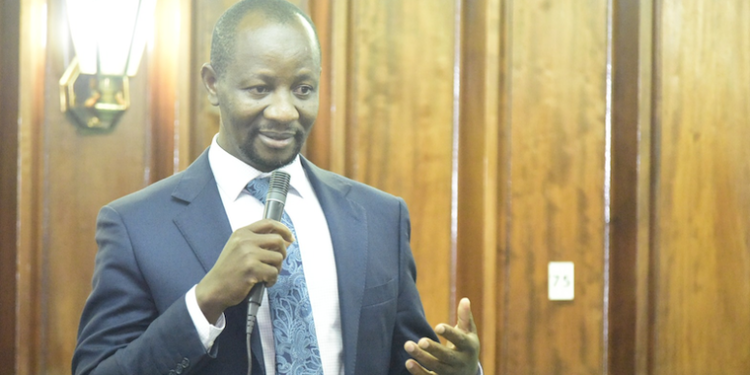By AGGREY BULUBA
Kampala – A recent amendment to the Uganda People’s Defence Forces (UPDF) Act, allowing civilians to be tried in military courts, has ignited a fierce national debate.
The ruling National Resistance Movement (NRM) pushed through the controversial measure, drawing sharp criticism from opposition leaders, legal experts, and human rights organizations who see it as a setback for democracy and judicial independence.
Kira Municipality MP Ibrahim Ssemujju Nganda has been one of the amendment’s most vocal critics. In an impassioned response, Ssemujju condemned NRM MPs who supported the bill, accusing them of betraying Uganda’s democratic values. He echoed sentiments previously expressed by General Muhoozi Kainerugaba, who had called those backing the amendment “clowns and idiots.”
Opposition politicians and legal experts argue that the amendment undermines Uganda’s constitutional order, which reserves military courts for armed forces personnel. Extending their jurisdiction to civilians, they warn, could be used to target political opponents and suppress dissent, further entrenching state control over judicial processes.
The Uganda Law Society and other human rights organizations have strongly opposed the amendment, citing concerns about the lack of transparency, accountability, and due process in military courts. Unlike civilian courts, military tribunals do not provide the same level of oversight, raising fears that they could become a tool for political persecution.
Critics argue that this amendment could further erode civil liberties by granting the military increased power over judicial matters. They warn that allowing MPs to pass laws that override constitutional provisions could weaken the separation of powers, giving the executive branch—led by the president—greater control over the judiciary.
Legal experts caution that these changes could fundamentally shift the balance of power in Uganda, making it harder for citizens to seek justice and limiting judicial independence. Many see this as a pivotal moment in the country’s legal and political history, with far-reaching consequences for the rule of law and democratic governance.
As opposition leaders and human rights groups continue to challenge the amendment, Uganda now faces a crucial test: Will it uphold its constitutional principles, or allow military influence to reshape its justice system?







Discussion about this post